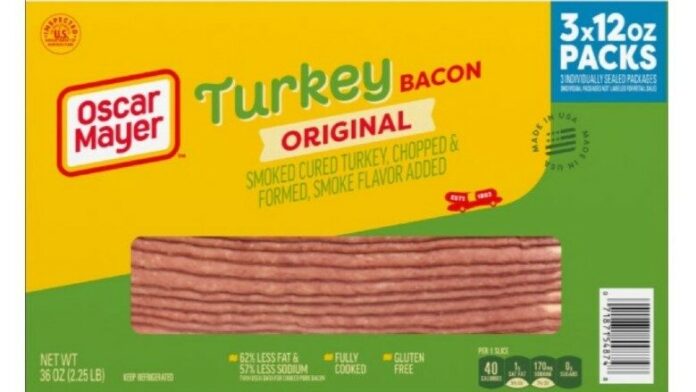Kraft Heinz Foods Co. is recalling nearly 368,000 pounds of fully cooked turkey bacon products due to potential contamination with Listeria monocytogenes. The affected products were produced between April 24 and June 11, 2025, and include various package sizes and UPC codes. This recall raises concerns about food safety, supply chain disruptions, and the impact on the food and beverage industry as a whole.
Food Safety Concerns and Supply Chain Disruptions
The discovery of Listeria monocytogenes in the turkey bacon products highlights the importance of rigorous food safety protocols in the industry. Contaminated products pose a serious health risk, especially to vulnerable populations such as older adults, individuals with weakened immune systems, and pregnant women. The potential consequences of consuming contaminated food include listeriosis, a severe infection that can lead to serious health complications.
For food and beverage professionals, this recall underscores the critical need for robust quality control measures throughout the supply chain. In this case, the contamination was detected through laboratory testing conducted by the establishment. However, the recall serves as a reminder of the ever-present risk of foodborne pathogens and the importance of proactive monitoring and testing to ensure product safety.
Implications for Sustainability and Strategic Outlook
In addition to the immediate food safety concerns, the recall of nearly 368,000 pounds of turkey bacon products has broader implications for sustainability and strategic planning within the food and beverage industry. Product recalls can disrupt supply chains, leading to potential losses for manufacturers, distributors, and retailers. In this case, the recalled products were distributed to retail locations nationwide and even exported internationally, highlighting the far-reaching impact of such incidents.
For food and beverage professionals, this recall serves as a wake-up call to reassess and strengthen supply chain resilience and contingency plans. Proactive risk management strategies, including regular audits, supplier assessments, and crisis response protocols, are essential to mitigate the impact of potential recalls and safeguard brand reputation.
Industry Analysis and Global Impact
Looking ahead, the recall of Kraft Heinz turkey bacon products may have implications for global pricing, logistics, and F&B planning. Supply chain disruptions resulting from recalls can lead to increased costs, delays in product availability, and reputational damage. Moreover, the international distribution of the affected products raises concerns about cross-border food safety regulations and compliance standards.
Food and beverage professionals must stay vigilant and proactive in addressing food safety risks and ensuring product quality and compliance. Heightened consumer awareness and regulatory scrutiny underscore the importance of transparency, traceability, and accountability throughout the supply chain. By prioritizing food safety and sustainability, industry stakeholders can build resilience, strengthen partnerships, and foster trust among consumers.
In conclusion, the recall of nearly 368,000 pounds of turkey bacon products by Kraft Heinz Foods Co. due to potential Listeria contamination serves as a stark reminder of the critical importance of food safety in the food and beverage industry. This incident highlights the need for robust quality control measures, supply chain resilience, and strategic planning to mitigate the impact of recalls on pricing, logistics, and F&B operations. By prioritizing food safety, sustainability, and transparency, industry professionals can navigate challenges, build resilience, and uphold the highest standards of product quality and consumer trust.




